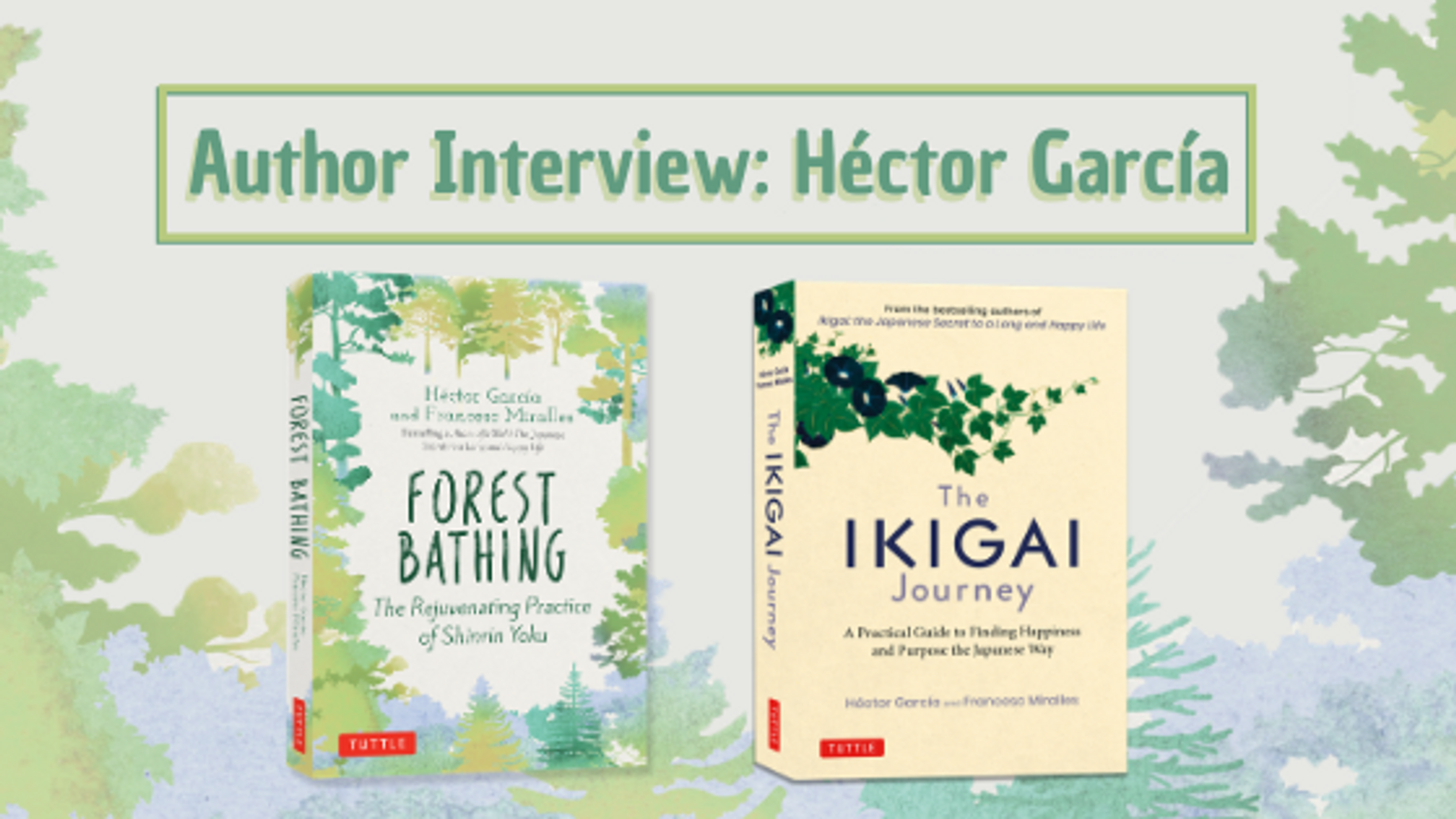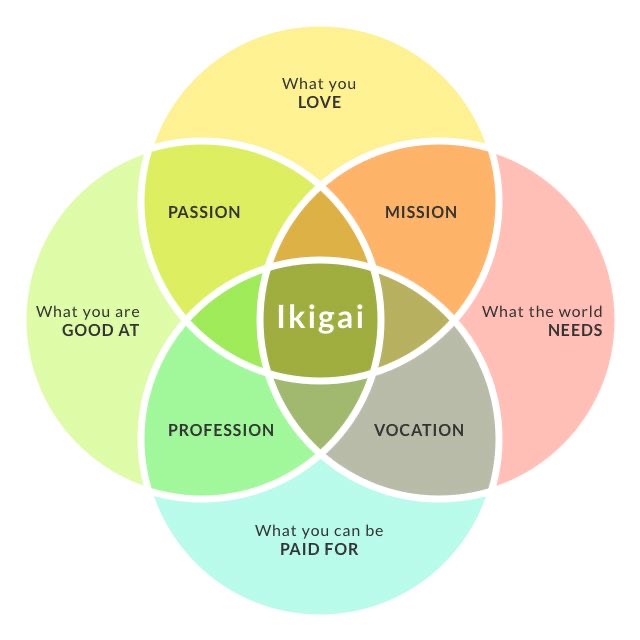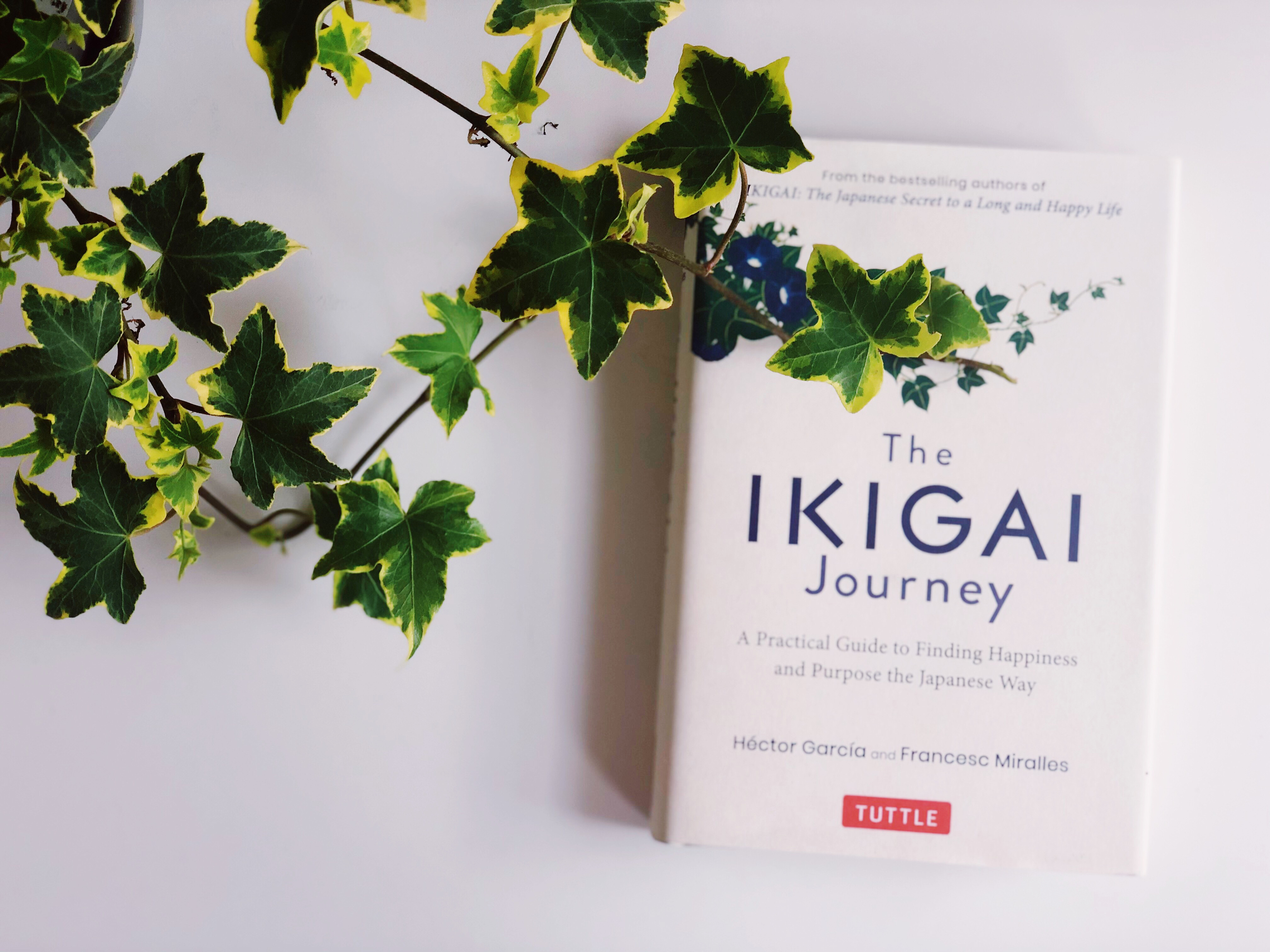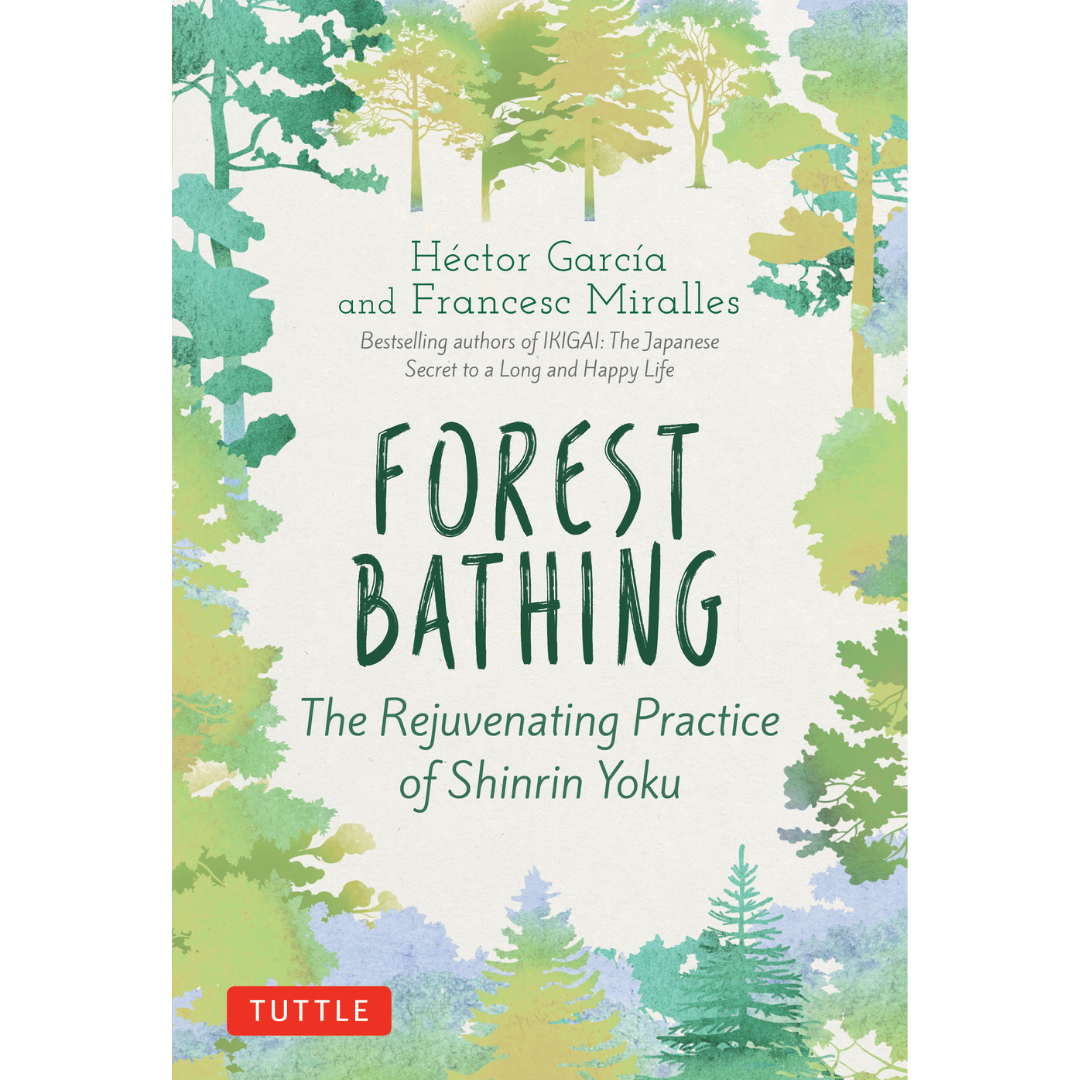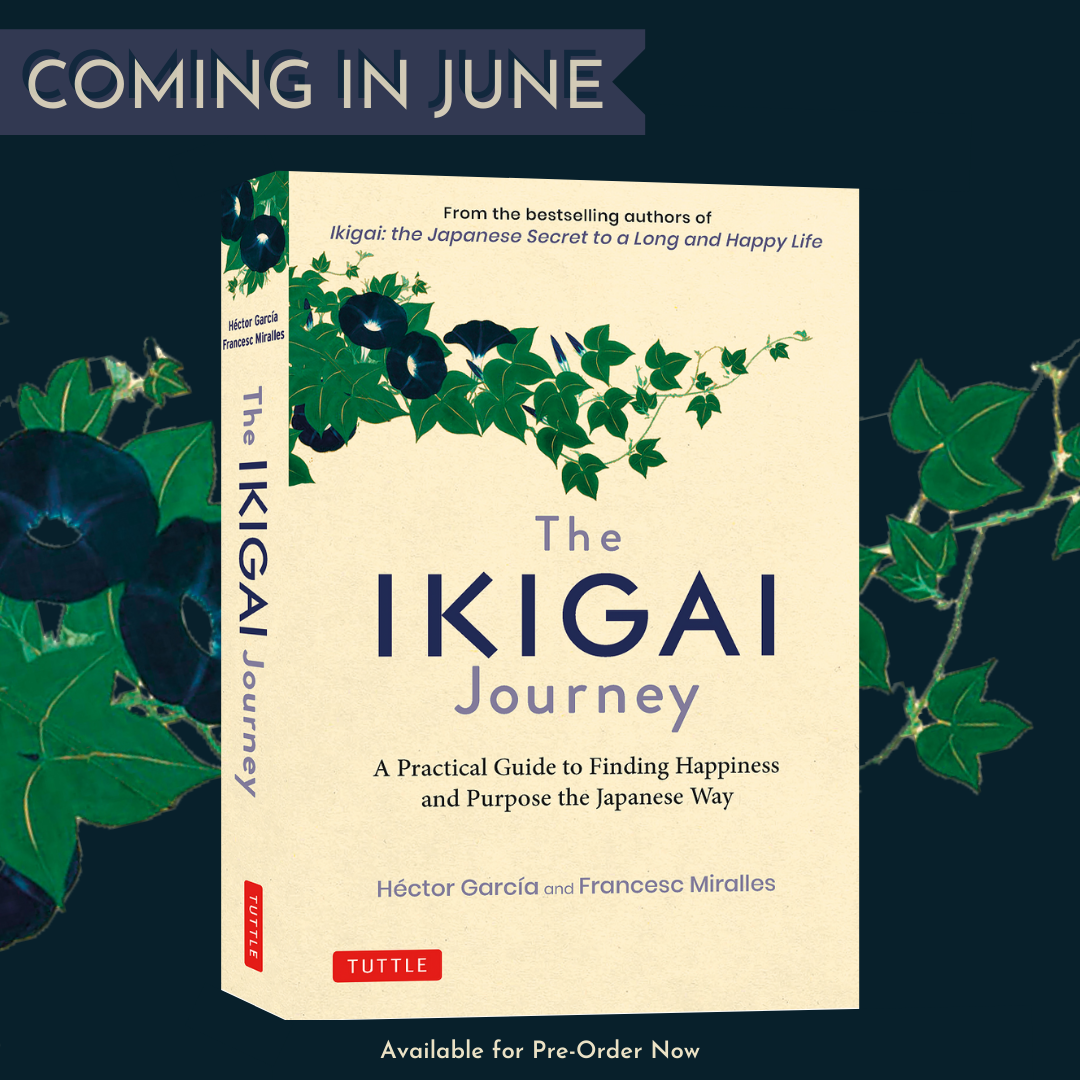Héctor García was born in Spain and worked at CERN in Switzerland before moving to Japan, his home of fourteen years and counting. In Japan he developed voice recognition software and the technology for young Silicon Valley companies to enter the Japanese market. His popular blog kirainet.com led to his internationally successful book A Geek In Japan. Along with Francesc Miralles, he is the author of the bestselling Ikigai: the Japanese Secret to a Long and Happy Life.
We spoke with Héctor about the two new Tuttle books he co-authored, Forest Bathing and The Ikigai Journey.
For those who don’t know, can you explain what ikigai is?
Ikigai is a Japanese word that means “a reason for being” or a free translation that I like more which is “the thing that wakes you up in the morning looking forward to your day.” In other cultures, we need a full sentence to explain it, but the magic of the Japanese language is that they have ikigai, which is only one word to express one of the most important things in our lives. What is more important than leading a life filled with meaning?
We should all aim to have our days filled with ikigai.
Obviously ikigai is a holistic approach, but can you share one practical tip or exercise from the book?
The first step is to realized that if you don’t know your ikigai, that’s ok. It means that your ikigai should be to find your ikigai. Next is to start your search for your ikigai, which can be overwhelming. You are not alone, we all go through phases in life in which we are more or less connected with our ikigai.
One practical exercise that we include in the book with more details is to write a very simple ikigai diary for 15 days. Before going to bed, write down the top 3 things that you enjoyed the most during the day, and the top 3 things that drained your energy. It should be very simple, just one sentence for each thing.
At the end of the 15 days read all the entries. Do you find patterns? If you do start spending less time on the things that drain energy from you, and spend more time in things that give you energy. Spending time doing things that you enjoy will help your soul to be more connected with your ikigai.
What’s a common misconception people have about forest bathing?
That you have to do something special while being in a forest. It is ok to just walk in nature, or even sit down and relax. The benefits of forest bathing come naturally just by being in a natural environment.
The problem is our modern society that is pushing us to live in concrete jungles. Just go for a walk to a park or green area once per week. That is enough to start getting most of the benefits from nature.
Why do you think the practice of forest bathing is becoming so popular around the world?
Humans are happy being in nature but cities are making us forget about it. Forest bathing is a reminder to all of us that we need nature to feel more alive.
“Mindfulness” has become a somewhat overused term in the Western world in recent years. How is the term/concept perceived and used in Japan?
In Japan, “mindfulness” is not as popular as in other places, but it is interesting that in some circles it is starting to be studied and compared with Japanese Zen meditation practices. From what I’ve seen, joining mindfulness workshops in Tokyo, it is not different from the pop culture version. I think the important point is to focus on the benefits of all these practices no matter how we name them.
Why do you think these books are useful for the unique moment we’re in?
I believe we are in the middle of a “meaning crisis” that is starting to affect generations of young people. There is a gap of “meaning” in the society that we have been constructing during the last decades. In the 21st century we are lacking support systems to give meaning to our lives, that’s why [co-authot Francesc Miralles and I] believe that IKIGAI is so important and needs to be developed as a philosophy to help people lead better lives.
Shinrinyoku ("forest bathing") is also important because of a gap in the societies that we are building. In this case the gap is forgetting about the importance of nature in our cities. Hopefully books like ours will inspire architects and urban planners create cities in which nature is as important as concrete.
I wish you all the best in finding or creating your IKIGAI, and also reconnecting with nature with forest bathing. –Héctor García

